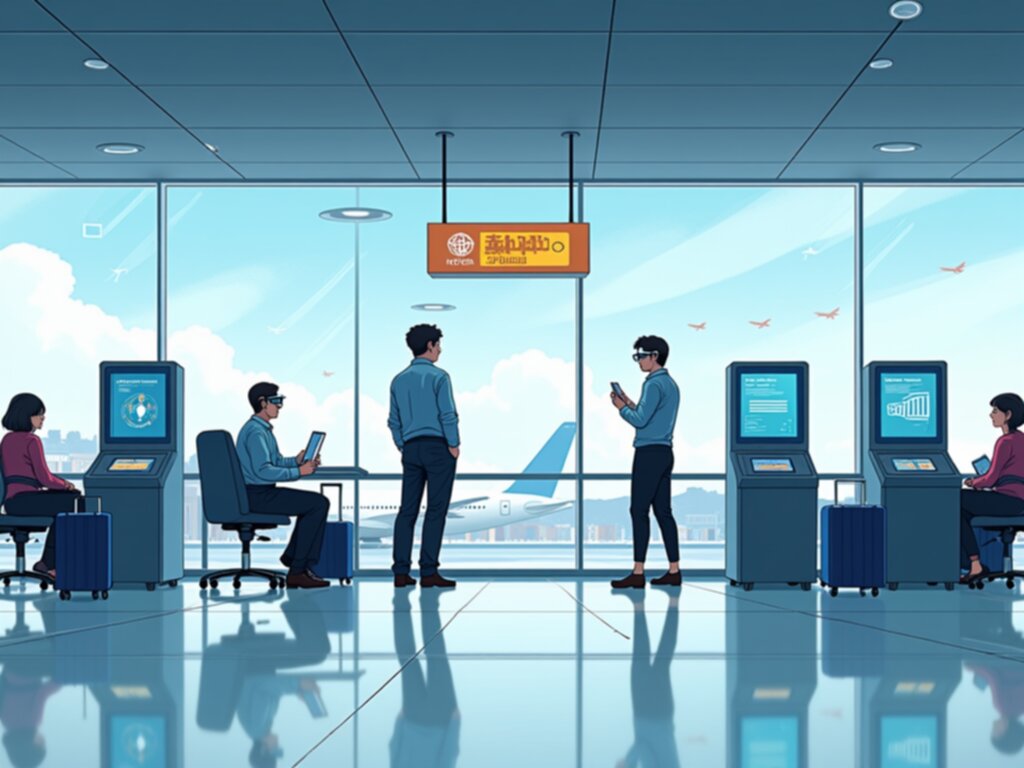What Happens After Your Luggage is Declared Lost A Day-by-Day Timeline for Airline Claims

The sinking feeling hits you somewhere between the baggage carousel spinning empty and the realization that your carefully packed essentials are currently enjoying an unscheduled layover in a different hemisphere. It’s a common travel nightmare, yet the bureaucratic process that follows often feels deliberately opaque. When that final piece of luggage fails to materialize, the immediate scramble for solutions begins, often fueled by adrenaline and a growing sense of injustice. We need to move beyond the panic and apply a systematic approach to understanding the airline's response timeline for a lost bag claim.
As someone who enjoys mapping out processes, I find the airline industry's handling of delayed or lost property fascinatingly rigid, yet often inconsistently applied across different carriers. What happens next isn't arbitrary; it follows a specific, albeit sometimes poorly communicated, sequence of internal triggers and regulatory deadlines. My objective here is to lay out the typical day-by-day operational reality once you file that Property Irregularity Report (PIR) at the airport service desk, moving from initial tracing attempts to the point where the bag is officially deemed "lost" under international conventions. Let’s track the clock, because time is the critical variable here.
The first 48 to 72 hours post-filing are dedicated almost entirely to active tracing, a phase where the bag is usually misplaced, not truly lost. During this period, the local handling agent at your arrival airport, and often the originating station, cross-references your PIR reference number against scanned bag tags that haven't found their matching owner yet. I've observed that if the bag was misrouted due to a simple scanning error or left on the tarmac, this is when recovery is most likely, often requiring manual checks of loading docks and transfer areas. You should receive regular, albeit often generic, updates based on system prompts, though persistence on your end, contacting the central baggage tracing office rather than just the airport desk, sometimes yields better data points. It is vital to retain every piece of paper you receive, including the tracing file reference number, as this is your unique identifier throughout the entire subsequent bureaucratic journey. Many passengers stop checking after day three, assuming the worst, but the system requires a few more cycles before it escalates the status internally.
Around Day 5 to Day 7, if the bag hasn't been located, the status usually shifts internally from "Delayed" to "Pended Investigation," triggering the next stage of the airline's internal protocol. This is the point where the airline begins to compile data for potential liability assessment, even if they haven't formally declared it lost to you yet. Under common carrier liability frameworks, airlines are usually given a definitive window, often around 21 days, before they are legally compelled to treat the item as irretrievably lost for compensation purposes. During this middle period, you are expected to submit detailed lists of contents and receipts for interim essential purchases, which are critical for establishing your claim's monetary value later on. If the airline offers you a small interim cash settlement around Day 10, it's usually a goodwill gesture to cover immediate needs, not an admission of permanent loss, and should be accepted cautiously while still documenting everything else. Failing to submit detailed documentation during this phase significantly weakens any future claim for full replacement value, regardless of when the bag is finally confirmed missing.
Once the 21-day mark passes without recovery, the airline’s internal system generally flags the baggage as officially "lost" according to established international regulations governing air travel liability. This declaration is the formal trigger for commencing the final compensation process, shifting the focus from logistics back to finance. Now, you must transition from submitting tracing updates to submitting finalized, detailed proof of loss documentation, including estimates or actual replacement costs for the declared contents. It is at this juncture that the airline's compensation calculation begins, often based on weight or a fixed liability ceiling unless you declared higher value and paid supplementary fees at check-in. This final stage often moves slowly, involving claims adjusters who review the submitted documentation against the airline's internal valuation tables, which can sometimes feel arbitrary when compared to the actual cost of replacing specialized or high-value items.
More Posts from aiflightrefunds.com:
- →Understanding EU Flight Delay Rules When 2-Hour Delays Trigger Passenger Rights
- →Navigating the 2024 TSA Liquid Rules What Sealed Drinks Can You Bring Through Airport Security?
- →The Sweet Spot Booking Flights 6-8 Weeks Ahead for Optimal Savings
- →AA2673 Flight Delay History and Compensation Guide CLT to SRQ Route Analysis (2023-2024)
- →7 Key Features of Modern Live Flight Trackers in 2024
- →Qatar Airways' Rise to the Top Analyzing Its 7-Time World's Best Airline Award